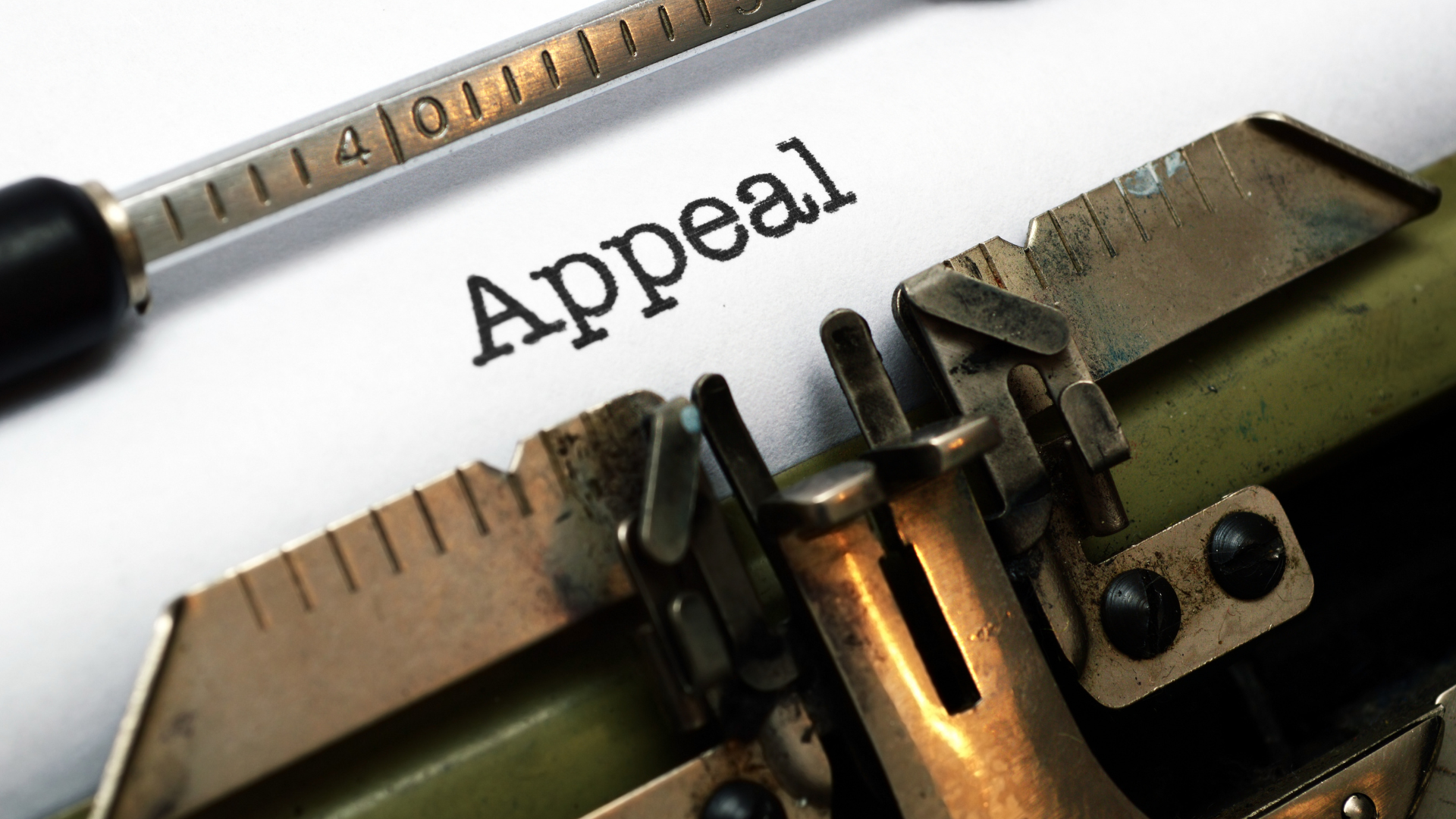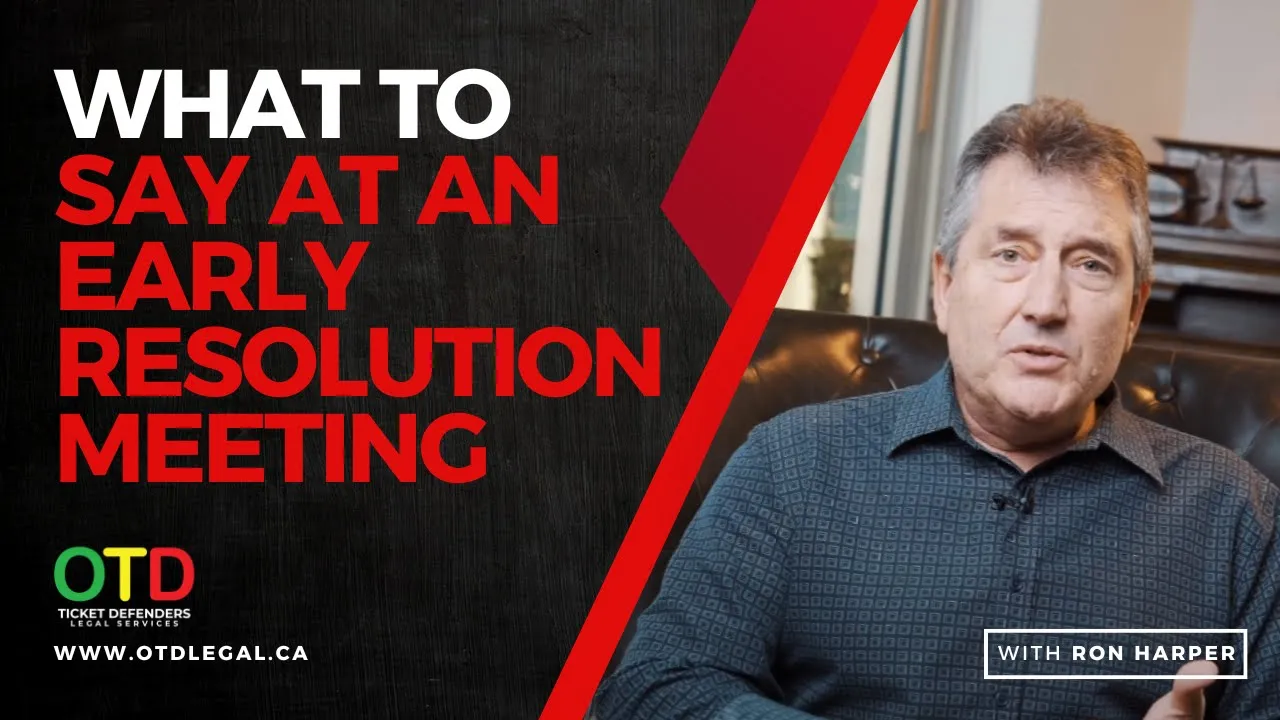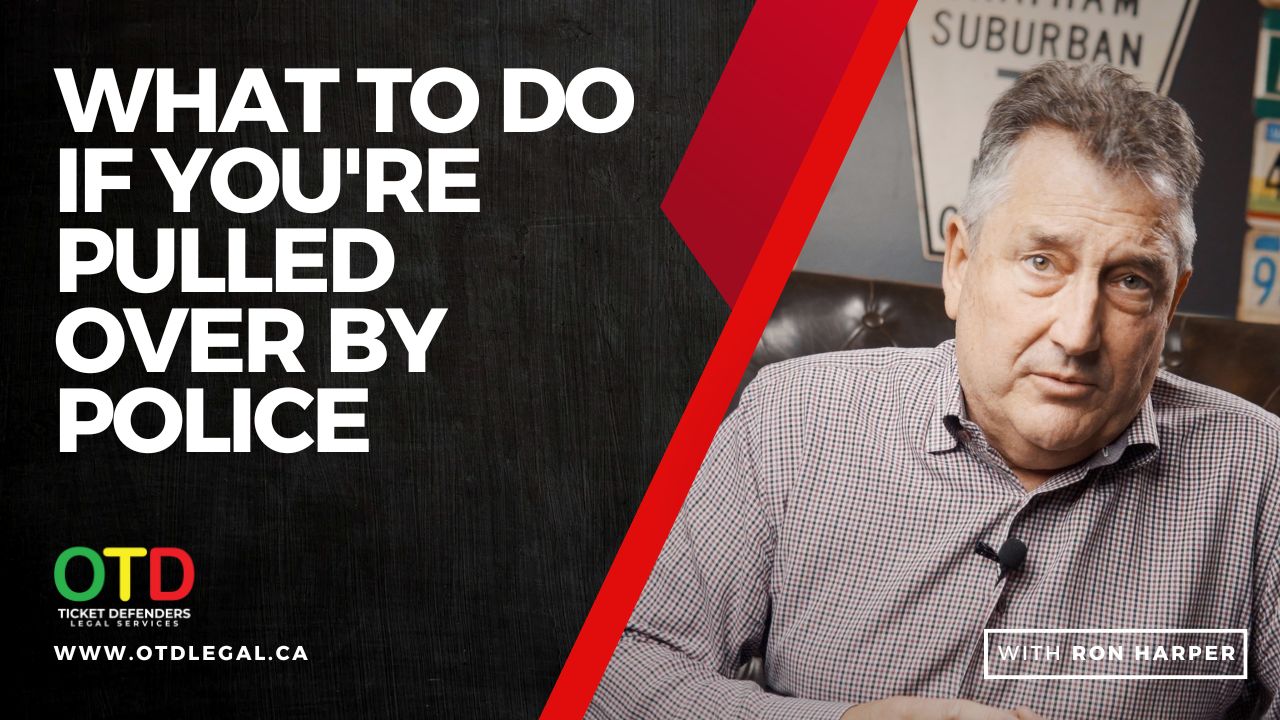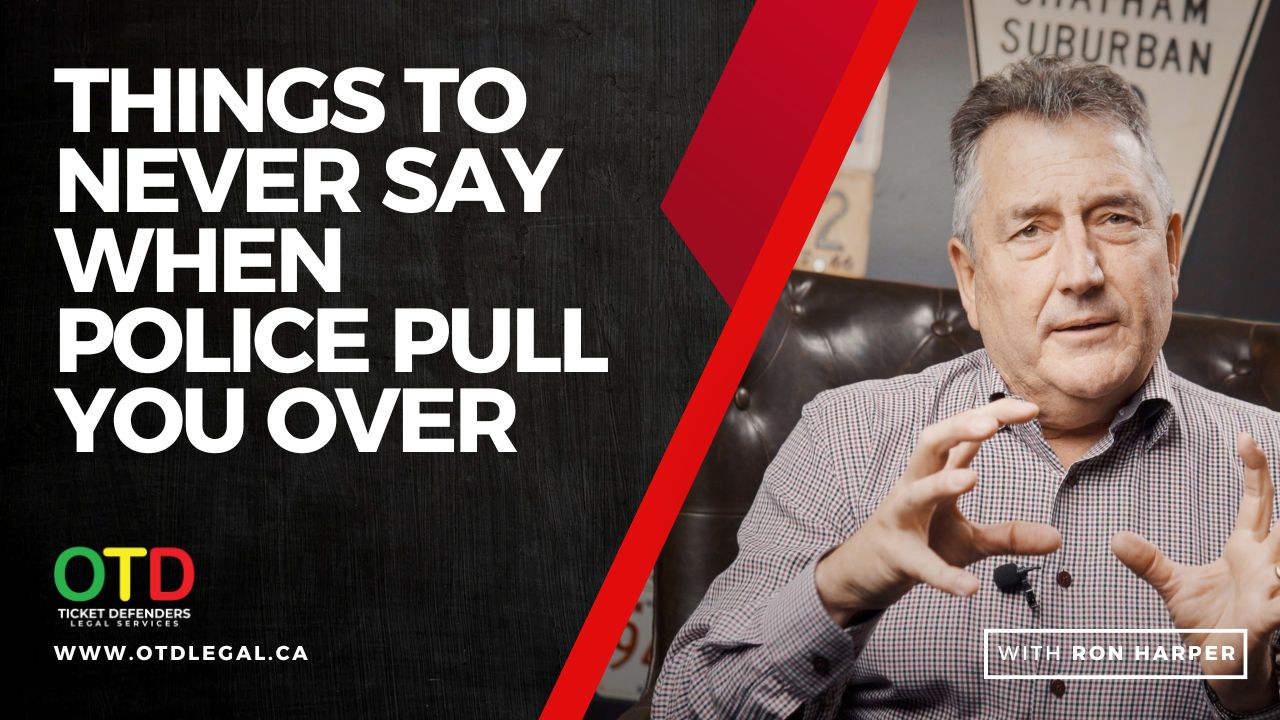You have just 15 days to respond to a traffic ticket in Ontario – miss it, and you could face an automatic conviction, licence suspension, and years of increased insurance rates. Understanding your options early is key to protecting your record and your wallet.
Important Things to Note:
- 15 days means calendar days: Weekends and holidays count – wait too long, and you lose your right to fight the charge.
- Three response options: Pay the fine (plead guilty), request a meeting with a prosecutor, or go straight to trial.
- Doing nothing equals conviction: Ignoring your ticket leads to automatic penalties and long-term consequences.
- Missed the deadline? There’s hope: You may be able to reopen your case or request more time if you act quickly and explain why you missed it.
- Part 3 summons are different: These require a court appearance – ignore it and you risk a conviction in your absence
- Licence suspension is real: Unpaid fines can lead to suspension and serious criminal charges if you drive anyway.
- Insurance costs skyrocket: Convictions and suspensions can raise your premiums for years – or even make you uninsurable.
- Appeals are time-sensitive too: You only have 30 days after conviction to file – no grace period.
- Legal help can change everything: Professionals know how to reopen cases, extend deadlines, and fight tickets strategically.
Bottom Line: Missing your traffic ticket deadline can turn a minor mistake into a major legal and financial problem. The sooner you act, the more options you keep open.
Read on to learn how Ontario’s strict ticket deadlines work – and how the right legal strategy can help you fight back, even if time is already running out.
Time is of the essence when you receive a traffic ticket in Ontario. Understanding the critical deadlines and your available options can mean the difference between a conviction that affects your driving record for years and a successful defence that protects your future. At OTD Legal, we’ve helped countless drivers navigate these time-sensitive decisions, and we understand the importance of acting quickly while making informed choices about your case.
When you receive a traffic ticket in Ontario, the clock starts ticking immediately. The Provincial Offences Act establishes strict timelines that govern your response options, and understanding these deadlines is crucial for protecting your rights and your driving record.
The 15-Day Response Period represents your primary window for action. From the date your ticket was issued, you have exactly 15 calendar days to select one of three options printed on the back of your ticket. This isn’t 15 business days – weekends and holidays count toward this deadline, making prompt action essential.
Option 1: Pay the Fine means you’re pleading guilty to the offence. While this might seem like the simplest choice, it results in a conviction on your driving record, potential demerit points, and likely insurance premium increases that can cost far more than the original fine over time.
Option 2: Early Resolution Meeting allows you to meet with a prosecutor before trial to discuss your case. This option can lead to reduced charges, lower fines, or alternative penalties. It’s often an effective middle ground that can achieve better outcomes than simply paying the ticket. *On some types of tickets courts will not offer Early Resolution Meetings. The options for fighting your ticket are always written on the ticket you’ve been issued.
Option 3: Request a Trial means you’re formally contesting the ticket and believe you can successfully defend against the charges. This option preserves your right to fight the ticket and potentially achieve complete dismissal of the charges.
Part 3 Summons operate differently from standard tickets. These more serious charges come with a mandatory court date already assigned, and you must appear on the specified date or face additional consequences.
Can I extend the time period?
While the 15-day response deadline is written on the ticket, many courts in Ontario have slightly longer response times. Ontario’s legal system also recognizes that circumstances sometimes prevent timely responses. Several mechanisms exist for extending deadlines or reopening cases, though each requires meeting specific criteria and following proper procedures.
Extension of Time to Pay Fines
If you’ve already been convicted (either by paying the ticket, failing to respond to the ticket on time, or through court proceedings) but cannot pay the fine by the due date, you can apply for an extension of time to pay. This application must be submitted to the court office noted on your Notice of Fine, and typically requires demonstrating genuine financial hardship or other compelling circumstances.
The application process involves completing specific forms that detail your financial situation and explaining why you cannot meet the original payment deadline. Courts generally look favourably on requests that demonstrate good faith efforts to pay and legitimate reasons for the delay, such as temporary unemployment, medical expenses, or other unexpected financial burdens.
Success with these applications often depends on proposing a realistic payment plan and showing that you’re not simply trying to avoid payment altogether. Courts may approve extended payment periods or installment plans that allow you to satisfy your obligation without causing undue financial hardship.
Reopening a Case (Setting Aside a Conviction to Start the Process Over)
If you were convicted without having the opportunity to properly respond – perhaps because you moved addresses, or were hospitalized during the response period – you may be able to apply to have the conviction set aside and the case reopened.
This process requires demonstrating that your failure to respond occurred “through no fault of your own.” Valid reasons might include, being out of the country during the response period, the court not receiving your response to the ticket due to postal issues, or experiencing a medical emergency that prevented timely action.
The application must typically be filed within 15 days of becoming aware of the conviction, and requires completing an affidavit explaining the circumstances that prevented your timely response. Courts evaluate these applications carefully, as they represent exceptions to the normal process, but genuine cases of missed deadlines due to circumstances beyond your control are often successful.
Professional Assistance with Missed Deadlines
Even if you’ve missed the initial 15-day deadline, professional legal representation can often help. Many jurisdictions in Ontario may still accept late filings under certain circumstances, and experienced legal representatives understand which courts might be more flexible and what arguments are most likely to succeed.
Legal professionals can also identify alternative approaches when standard deadline extensions aren’t available. This might involve finding other legal grounds for reopening your case. Your available options are discussed during a consultation with a legal professional.
What happens if you do nothing?
Ignoring a traffic ticket in Ontario triggers a cascade of increasingly serious consequences that can significantly impact your life beyond the original fine. Understanding these repercussions helps illustrate why taking timely action is so important.
Automatic Conviction and Immediate Consequences
When you fail to respond within the 15-day period, the court can automatically enter a conviction against you. This isn’t simply a fine that you’ll eventually have to pay – it’s a legal finding of guilt that becomes part of your permanent driving record with all the associated consequences.
The automatic conviction means you lose any opportunity to contest the charges, negotiate reduced penalties, or present evidence that might have led to dismissal of the ticket. What might have been a defendable case becomes a conviction simply due to inaction.
Your driving record will show the conviction, complete with any associated demerit points. These points remain on your record for two years from the date of offence and can accumulate toward licence suspension thresholds. For new drivers, accumulating just 9 points can trigger licence suspension, while experienced drivers face suspension at 15 points.
Financial Escalation and Collection Actions
The original fine becomes payable within 15 days of the conviction, but the financial consequences extend far beyond the ticket amount. Additional surcharges and administrative fees may be added to your total debt, and failure to pay can trigger aggressive collection actions by the government.
Ontario has broad powers to collect unpaid fines, including reporting the debt to a collection agency, garnishing wages, and preventing the renewal of a licence plate or driver’s licence. Unlike most debts, there’s no limitation period for collecting unpaid provincial fines – they can pursue collection indefinitely until the debt is satisfied.
Licence Suspension and Driving Privileges
Failure to pay traffic fines, accumulation of demerit points, or novice licence conditions may result in automatic licence suspension by the Ministry of Transportation. This suspension remains in effect until all outstanding fines and additional administrative fees are paid in full, and a reinstatement fee is paid to the Ministry of Transportation. Driving with a suspended licence is a serious offence that can result in additional fines, jail time, a longer licence suspension, and vehicle impoundment.
The licence suspension affects more than just your ability to drive legally. Many employment opportunities require a valid licence, and professional drivers can lose their livelihood entirely. The suspension also appears on background checks and can affect insurance eligibility even after it’s resolved.
Reinstating your licence after suspension requires paying all outstanding fines plus reinstatement fees, and you may face additional requirements such as retesting or completing driver improvement programs depending on the circumstances of your suspension. If your licence was suspended for a lengthy period of time, you may have to begin the licensing process all over again, starting with a G1 class licence.
Insurance and Long-term Financial Impact
Insurance companies regularly check driving records and adjust premiums based on convictions and licence suspensions. A traffic conviction can increase your insurance rates for three to six years, often costing thousands of dollars more than the original fine would have been. A licence suspension is treated as a separate incident and lapse in driving, which could significantly increase your insurance rates.
The combination of conviction and licence suspension creates a particularly negative insurance profile that can make coverage difficult to obtain and extremely expensive when available. Some insurance companies may refuse to renew policies for drivers with suspended licences, forcing you into high-risk insurance markets with significantly higher costs.
Appealing A Conviction
If you’ve gone through the court process and been convicted after trial, or if you failed to respond to your ticket within the deadlines, you may still have options for challenging the decision through the appeal process. However, appeals operate under even stricter deadlines and more complex procedures than the original ticket response.
The 30-Day Appeal Deadline
You have exactly 30 days from the date of conviction to file a Notice of Appeal. This deadline is absolute – and like the initial ticket response period, there are no automatic extensions or grace periods for appeal deadlines.
The 30-day period begins on the date the conviction was entered, not when you received notice of the conviction. This means you need to be aware of court dates and outcomes even if you weren’t present for the proceedings. Missing this deadline severely limits your options for challenging the conviction.
If you miss the 30-day deadline, you can still attempt to appeal, but you must first obtain judicial permission by filing an Application for Extension of Time to Appeal. This requires demonstrating valid reasons for the delay and convincing a judge that justice requires allowing the late appeal. Courts are generally reluctant to grant these extensions except in exceptional circumstances.
Requirements for Filing an Appeal
Appeals are not new trials – they’re reviews of the original proceedings to identify legal errors or procedural problems that affected the outcome. This means you must have specific grounds for appeal, such as errors in law, misinterpretation of evidence, or procedural violations that occurred during your trial.
Before filing an appeal, you typically must pay the fine and any associated costs from your conviction. This requirement can be waived in cases of financial hardship, but you must apply for permission to appeal without paying the fine and demonstrate that payment would cause genuine hardship.
You’ll also need to order transcripts of your original trial proceedings, which can take several weeks and cost several hundred dollars. These transcripts are essential for the appeal court to review what occurred during your trial and identify any errors that might have affected the outcome.
The Appeal Process and Potential Outcomes
Appeals are heard by a judge who reviews the trial proceedings and evidence to determine whether legal errors occurred. The appeal court can uphold the original conviction, overturn it entirely, or order a new trial if significant errors or prejudice are identified.
The appeal process typically takes several months to complete and requires presenting legal arguments about why the original trial was flawed. This is highly technical legal work that generally requires professional representation to be effective.
Success on appeal can result in complete dismissal of the charges, reduction of penalties, or ordering a new trial with proper procedures. However, appeals are challenging to win and require demonstrating clear legal errors rather than simply disagreeing with the trial outcome.
When to Hire Legal Representation
The decision about when to seek professional legal help depends on several factors, including the seriousness of your charges, the complexity of your case, and the potential consequences of conviction. However, certain situations make legal representation particularly valuable.
Immediate Benefits of Early Legal Consultation
Consulting with legal professionals immediately after receiving a ticket provides the maximum range of options and strategies. Early intervention allows your representative to properly evaluate your case, identify potential defences, and ensure all deadlines are met while preserving every available option.
Professional legal representation can handle all communications with the court system, ensuring proper procedures are followed and deadlines are met. This eliminates the risk of procedural errors that could harm your case and allows you to focus on your daily life while your case is being handled.
Legal professionals also understand the local court systems, prosecutor practices, and judicial preferences that can significantly affect case outcomes. This knowledge helps them develop strategies tailored to your specific situation and the particular court where your case will be heard.
Complex Cases and Serious Charges
Certain types of tickets virtually require professional representation due to their complexity or potential consequences. Stunt driving charges, careless driving allegations, and cases involving multiple offences often involve technical legal issues that are difficult to navigate without specialized knowledge.
Professional drivers, including those with commercial licences, face particularly serious consequences from traffic convictions that can affect their livelihood. The investment in legal representation often pays for itself by preserving employment opportunities and avoiding career-ending licence suspensions and court decisions.
Cases involving accidents, injuries, or property damage also benefit from professional representation due to the potential for civil liability and insurance complications. Legal professionals can coordinate your traffic ticket defence with other legal issues to ensure consistent strategies across all proceedings.
Missed Deadlines and Procedural Complications
If you’ve already missed the initial 15-day response deadline, professional legal representation becomes even more valuable. Legal professionals understand which courts might still accept late filings and what arguments are most likely to succeed in reopening cases or obtaining extensions.
The process of fighting traffic tickets involves numerous procedural requirements and deadlines that can be overwhelming for individuals without legal training. Professional representation ensures these requirements are met while developing the strongest possible defence strategy.
Legal professionals can also identify issues with the original ticket or court proceedings that might provide grounds for dismissal or appeal. These technical defences often require specialized knowledge to recognize and properly present to the court.
Cost-Benefit Analysis of Legal Representation
While legal representation involves upfront costs, the long-term financial benefits often far exceed these expenses. Successful defence of a traffic ticket can save thousands of dollars in insurance premium increases over several years, making legal representation a sound financial investment.
The cost of conviction extends beyond immediate fines to include demerit points, licence suspension risks, and employment implications for professional drivers. Professional representation helps avoid these consequences while often achieving better outcomes than self-representation.
Many legal representatives offer free consultations to evaluate your case and explain your options. This allows you to make an informed decision about representation based on the specific circumstances of your case and the potential benefits of professional assistance.
Frequently Asked Questions
What if I was out of the country when my ticket was issued and missed the deadline?
Being out of the country when your ticket was issued or during the response period can provide grounds for reopening your case or obtaining an extension. You’ll need to apply to have the conviction set aside by demonstrating that you were unable to respond through no fault of your own. Documentation such as passport stamps, travel itineraries, or employment records showing you were abroad can support your application. The key is acting promptly once you become aware of the conviction and providing clear evidence of your circumstances.
Can I still fight my ticket if I’ve already paid the fine?
Paying the fine constitutes a guilty plea and results in immediate conviction, which generally eliminates your ability to contest the charges. However, in very limited circumstances, you might be able to appeal your matter if you can demonstrate that it was entered due to mistake, fraud, or other exceptional circumstances. This is a complex legal process that typically requires professional representation and has strict time limits.
What happens if I miss my early resolution meeting or trial date?
Missing a scheduled early resolution meeting or trial date typically results in automatic conviction and the imposition of penalties. However, you may be able to apply to reopen the case if you can demonstrate that your absence was due to circumstances beyond your control, such as a medical emergency, or failure to receive proper notice. These applications must be made promptly after you become aware of the missed date and require explaining the circumstances that prevented your attendance.
How do weekends and holidays affect the 15-day deadline?
The 15-day response period includes weekends and holidays – it’s 15 calendar days, not business days. This means you need to count every day from the date your ticket was issued, including Saturdays, Sundays, and statutory holidays. If the 15th day falls on a weekend or holiday when court offices are closed, the deadline extends to the next business day, but it’s always safest to respond before the weekend or holiday period.
Can I change my mind after selecting an option on my ticket?
Once you’ve submitted your ticket response, changing your selection can be difficult and may not be possible depending on how far the process has progressed. If you’ve requested an early resolution meeting, you might be able to change to requesting a trial, but this depends on the specific court’s procedures. If you’ve paid the fine, you’ve entered a guilty plea and conviction, which is much more difficult to reverse. This is why it’s important to carefully consider your options or consult with legal representation before submitting your response.
What if I never received the original ticket but found out about the conviction later?
If you never received the original ticket due to address changes, postal issues, or other circumstances beyond your control, you may be able to apply to have the conviction set aside and receive a new trial. You’ll need to demonstrate that you didn’t receive proper notice of the charges and that your failure to respond was through no fault of your own. This application must typically be made within 15 days of becoming aware of the conviction, and supporting documentation about your circumstances will strengthen your case. These cases usually deal with vicarious liability cases, which are limited to tickets that do not go on your driving record or have demerit points, usually received due to a red light camera offence or photo radar ticket.
Time is critical when dealing with traffic tickets in Ontario, but understanding your options and deadlines helps ensure you make the best decisions for your situation. Whether you’re within the initial 15-day response period or dealing with missed deadlines and existing convictions, professional legal guidance can help protect your driving record and minimize the long-term consequences of traffic charges.
OTD Legal provides comprehensive traffic ticket defence services across Ontario, helping drivers navigate complex deadlines and procedures while developing effective defence strategies. Our experienced team understands the time-sensitive nature of traffic tickets and works quickly to preserve your options and protect your interests.
Don’t let strict deadlines prevent you from exploring your options. Contact OTD Legal for a free consultation to discuss your specific situation and learn how we can help protect your driving record and your future. Our team serves clients throughout Ontario with convenient office locations and flexible consultation options to meet your needs.







